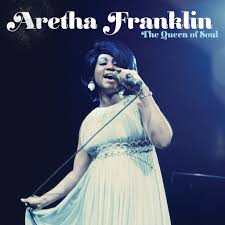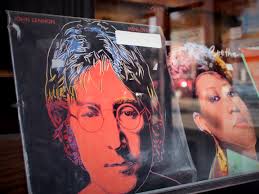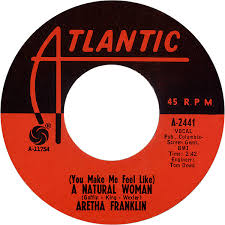
Aretha Franklin has died. Her transition left me feeling sad and somewhat empty. I hated to see that day arrive. I have rarely felt the intensity of loss that I feel for her, at least when it comes to famous people who I’ve never met. Why would this be?
We have to go way back to find the answer. I had been enjoying early rock and roll in the 1950’s. Much of popular music on the periphery came in crossover hits. Rhythm and Blues with artists such as Fats Domino and Jackie Wilson blended seamlessly in with the pop music scene. I think the first soul song that really got me excited was Locomotion by Little Eva, without me recognizing it as a genre unto itself. That was 1962. I remember hearing it on our radio in the kitchen on a Saturday night. I think I was listening to Cousin Brucie on WABC out of New York City. It was an exciting sound. In the same year, the Four Seasons broke through with their first hit, Sherry. I believe it had its roots in Doo-Wop music, featuring amazing harmonies and a tenor whose falsetto was up in the soprano range.
By 1963, I was dancing at sock hops in my little town in Pennsylvania. It seemed as though there was a tsunami of soul music that sounded so-o-o good in that dimly lit gymnasium. Songs like Our Day Will Come, Be My Baby and Up On The Roof struck chords deep within in different ways, but all under the canopy of soul. It wasn’t that this genre was dominating pop music at the time. By my count, there were only three soul songs in the Billboard Top 40 that year. Stevie Wonder had broken through with Fingertips-Pt 2. The Impressions were there also along with Martha and the Vandellas. It’s just that this music was distinctive, fresh and light. As the teenagers would say on American Bandstand about various kinds of songs, “It has a good beat and is easy to dance to.”
In 1964, soul artists more than doubled their presence in the Top 40 with eight scores despite the onslaught of the Beatles and the rest of the year’s British Invasion groups. I find it interesting that among the eight, seven were sung by solo women, girl groups or a male/female duet. The soul sisters were leading the charge in those early years. The men came on strong in 1965 with James Brown, The Temptations, The Four Tops, Junior Walker & The All Stars and Mel Carter in the face of continued stiff competition from the British bands as well as the likes of the Beach Boys and the ever-present Elvis Presley. Soul was continuing to rise through it all. The AM radio stations couldn’t ignore it and some began to thrive on it. Living fairly close to Lake Erie, we were able to pick up the strong signal of CKLW out of Windsor, Ontario which was just across the river from Detroit. The Motown influence was powerful and the Top 40 format was weighted heavily in favor of soul, or so it seemed to me at the time.
Although pop music in those years was fairly diverse and much of it was of high quality, my primary focus was on The Beatles and soul. A rather strange combination, but it demonstrates the strength of soul in its competition with the rest of the field, especially the British groups.

But what about Aretha? As 1967 rolled around, the soul express was gaining steam and Aretha hadn’t really even been noticed yet. While recording for Columbia in New York, her career was going nowhere. Then she signed with Atlantic Records and they sent her to the little studio in Muscle Shoals that turned it all around. Her first hit, I Never Loved A Man (The Way I Love You) was laid down there. Then Respect went to No. 1 and its flip side to No. 4. (You Make Me Feel Like) A Natural Woman followed those up and became one of her all-time favorites. By the end of the year, she had five songs in the Top 40! I was totally on the bandwagon. That powerful voice, that exquisite expression of emotion were the quintessence of soul music. There was never another year like 1967 for Aretha, but she charted plenty more singles in the Top 40. She ranks first with the most number of chart hits among women in the rock era. She had more Top 100 album sales than I even care to count.
I wasn’t aware of those statistics, though. What matters to me is how she made me feel. She obviously reached deep and found a beauty in human suffering, a love profound and sad, a purity of heart that connects to us all. It hurts so good.

The Muscle Shoals documentary gave some great background on that early era for Aretha. Great post, Bo. I’m a feelin’ too. When she passed I was digging through some youtube videos and came upon her singing Nessun Dorma aria at the Grammys years ago to help friend, Pavarroti, who had sudden throat issues. As a lover of that opera (Puccini’s Turandot) I didnt connect with her voice in that role but then a week later saw a video her granddaughter posted taken last March. Aretha noodling on the piano at home and blowing kisses to her grandchild, and you can just make out the tune if you know it–Nessun Dorma. That beautiful aria had stayed with her. None of the people commenting knew what she was singing…but I did and it touched me deeply.